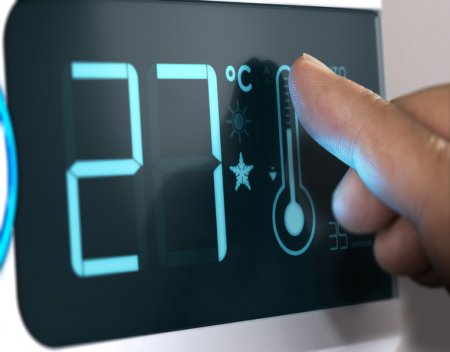Blog Categories
- Appliances Four
- Athletic Seating
- Auto Helpers
- Automated Stock Rooms
- Chocolate Four
- CuraFlo
- Damaged Goods Dating
- Flood Insurance Four
- Game Addict
- Hi Tech Pest Control
- HVAC Four
- Medical Labels Four
- Mental Health Four
- National CWS
- Promotional Ideas
- Seguros Lara Insurance
- Stem Cell Worx
- The Hidden Truth
- The Last Refuge
- The Mozilla Blog
- Video Editing Four
- Web Design Dev
- Website Development Four
- Windows Blog
Understanding HVAC Systems Better

Whether you are cooling your office in the summer or keeping your home comfortable in the winter, HVAC systems have become a part of your everyday life. Your heating, ventilation, and air conditioning (HVAC) system is the combination of different systems used to provide a comfortable temperature in your home, and it also maintains high levels of air quality. As homeowners, it is important for us to understand the key roles that our HVAC system plays as well as how they operate in order to get the most out of them. HEATING The heating component of an HVAC system provides a warm and cozy climate for your home in the colder months of the year. With today’s technology, the most popular type of heating system would be the forced air system, but there are homes that use radiant and geothermal heating systems, among others. Regardless of what system you use at home, heat is still created at a central source and it is distributed through the home via different ways. No matter the type of system you have, your HVAC system will make your home warm and enjoyable for you and the whole family during cooler months. VENTILATION Ventilation plays a major role as it helps circulate and purify your indoor air. It also helps control moisture levels, prevent air stagnation, and remove unwanted odours. Ventilation can be done naturally (with fans and windows) or mechanically, and even through a combination of those two – but this depends on the age of your home and the HVAC system that you have. Forced air systems pass the air in your home via an air filter that keeps volatile organic compounds (VOCs), airborne particulates, and allergens out of your home. In such cases that you do not have a fixed air system, this can still be done using aids like air purifiers, air cleaners, humidifiers, and humidifiers. Understanding how your HVAC system helps keep your home ventilated is the first step to addressing any allergy or breathing issues that you and your family might be encountering throughout the year. AIR CONDITIONING In addition to heating and ventilation, your HVAC system is also responsible for keeping your cool during the warmer months. There are different types of AC units that come with their own pros and cons. It does not matter if you are using central air, split or ductless units, portable AC units, or window AC units, the process that each system uses to cool homes is similar. Your cooling system, as it collects and expels heat from inside your home, circulates refrigerant that changes from gas to liquid. It passes warm vapour refrigerant through its compressor where it is transformed into hot refrigerant vapour and then moves to the condenser. The hot vapour, when in the condenser, becomes cool as air from the condenser fan passes over its finned coils and will then turn into hot liquid. This hot liquid will pass through the expansion valve, creates a low pressure, cool liquid mist that will run through the evaporator coil. As the cool liquid mist evaporates, it then absorbs the heat from your house’s indoor air and returns to the compressor – this restarts the whole process. The absorbed heat is then pushed outside by the system, leaving your home cooler. Now that you understand the roles that your HVAC system plays in our lives, you can maintain your system better, learn more about it, determine what might be missing, and purchase a new system as needed. If you need any help or assistance, feel free to reach out to our experts here at Twintech Heating and Cooling anytime!
Re Posted From: Understanding HVAC Systems Better

Whether you are cooling your office in the summer or keeping your home comfortable in the winter, HVAC systems have become a part of your everyday life. Your heating, ventilation, and air conditioning (HVAC) system is the combination of different systems used to provide a comfortable temperature in your home, and it also maintains high levels of air quality. As homeowners, it is important for us to understand the key roles that our HVAC system plays as well as how they operate in order to get the most out of them. HEATING The heating component of an HVAC system provides a warm and cozy climate for your home in the colder months of the year. With today’s technology, the most popular type of heating system would be the forced air system, but there are homes that use radiant and geothermal heating systems, among others. Regardless of what system you use at home, heat is still created at a central source and it is distributed through the home via different ways. No matter the type of system you have, your HVAC system will make your home warm and enjoyable for you and the whole family during cooler months. VENTILATION Ventilation plays a major role as it helps circulate and purify your indoor air. It also helps control moisture levels, prevent air stagnation, and remove unwanted odours. Ventilation can be done naturally (with fans and windows) or mechanically, and even through a combination of those two – but this depends on the age of your home and the HVAC system that you have. Forced air systems pass the air in your home via an air filter that keeps volatile organic compounds (VOCs), airborne particulates, and allergens out of your home. In such cases that you do not have a fixed air system, this can still be done using aids like air purifiers, air cleaners, humidifiers, and humidifiers. Understanding how your HVAC system helps keep your home ventilated is the first step to addressing any allergy or breathing issues that you and your family might be encountering throughout the year. AIR CONDITIONING In addition to heating and ventilation, your HVAC system is also responsible for keeping your cool during the warmer months. There are different types of AC units that come with their own pros and cons. It does not matter if you are using central air, split or ductless units, portable AC units, or window AC units, the process that each system uses to cool homes is similar. Your cooling system, as it collects and expels heat from inside your home, circulates refrigerant that changes from gas to liquid. It passes warm vapour refrigerant through its compressor where it is transformed into hot refrigerant vapour and then moves to the condenser. The hot vapour, when in the condenser, becomes cool as air from the condenser fan passes over its finned coils and will then turn into hot liquid. This hot liquid will pass through the expansion valve, creates a low pressure, cool liquid mist that will run through the evaporator coil. As the cool liquid mist evaporates, it then absorbs the heat from your house’s indoor air and returns to the compressor – this restarts the whole process. The absorbed heat is then pushed outside by the system, leaving your home cooler. Now that you understand the roles that your HVAC system plays in our lives, you can maintain your system better, learn more about it, determine what might be missing, and purchase a new system as needed. If you need any help or assistance, feel free to reach out to our experts here at Twintech Heating and Cooling anytime!
Re Posted From: Understanding HVAC Systems Better

